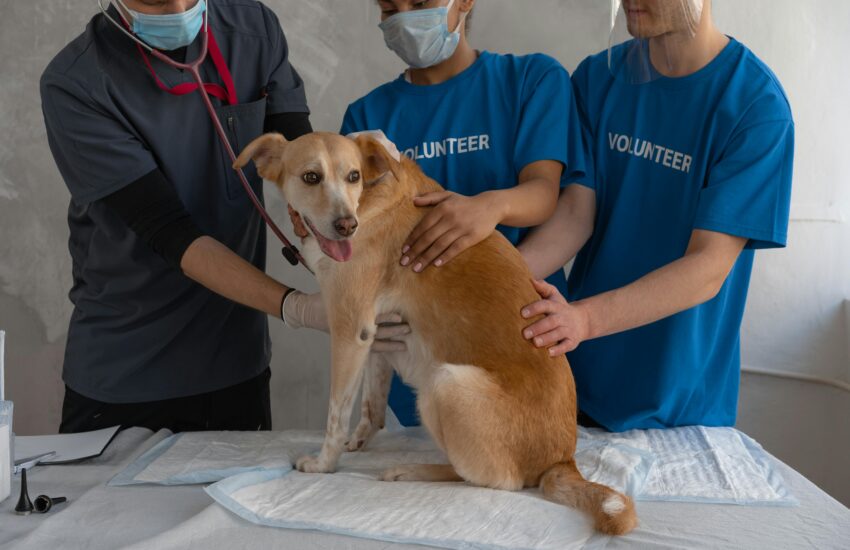Hamster Veterinary Care
Hamsters make adorable and delightful pets that require specialized care to ensure their health and well-being. Proper hamster veterinary care is integral to maintaining their happiness and longevity. In this article, we will explore essential aspects of hamster care, including health check-ups, common health issues, and tips on finding a qualified veterinarian.
Importance of Regular Veterinary Check-ups
Just like any other pet, hamsters benefit significantly from regular veterinary visits. **Routine check-ups** are essential for monitoring your hamster’s health, catching any potential issues early, and ensuring they are up-to-date on vaccinations. For small creatures, even minor health problems can escalate quickly, so it’s crucial to establish a relationship with a veterinarian who specializes in small animals, particularly rodents.

Creating a Care Schedule
Establishing a **care schedule** is vital for your hamster’s health. Typically, hamsters should visit a vet at least once a year for a thorough examination. However, if your hamster is showing signs of illness or if they are getting older, more frequent visits may be necessary. Make sure to keep track of any changes in behavior, weight, or eating habits, and communicate these during your vet visits.
Essential Health Checks
During veterinary visits, your vet will conduct a series of essential health checks. This typically includes evaluating your hamster’s weight, teeth, fur, and overall demeanor. Since hamsters are prone to dental issues, your vet will specifically check their teeth and gums, offering tips on how to maintain dental health at home.
Common Health Issues in Hamsters
Hamsters can face various health issues that require prompt veterinary attention. Recognizing the symptoms early can substantially improve treatment outcomes and quality of life. **Common health problems** among hamsters include respiratory infections, wet tail, and obesity.
Understanding Wet Tail
One of the most serious conditions your hamster may encounter is **wet tail**, a condition that primarily affects younger hamsters. Symptoms include diarrhea, lethargy, and a wet backside. If you notice these signs, it’s critical to seek veterinary help immediately, as wet tail can quickly become fatal if left untreated.
Dental Problems
Dental issues, such as overgrown teeth, are common in hamsters and can lead to severe pain and difficulty eating. Regular check-ups allow the vet to monitor your hamster’s dental health and inform you of proper care techniques to prevent problems. Additionally, providing chew toys can help maintain healthy teeth.
Finding the Right Veterinarian
Finding a veterinarian experienced with small animals is crucial for the well-being of your hamster. A veterinarian that specializes in exotic pets will have the expertise needed to accurately diagnose and treat your furry friend. It’s important to research and ask questions regarding their experience with hamsters specifically.
Questions to Ask Your Vet
When seeking a new veterinarian, prepare a list of questions to ensure they can meet your hamster’s needs. Ask about their experience with hamsters, their approach to preventive care, and what services they provide for small animals. Having a vet you trust can make a significant difference in your pet’s health journey.
Prioritizing Emergency Care
Ensure that your chosen vet offers emergency care or has connections with emergency clinics specializing in small animals. Hamsters can become ill unexpectedly, and prompt treatment is crucial. Know the signs of distress to act quickly when necessary.
Key Takeaways
To keep your hamster healthy and happy, prioritize regular veterinary check-ups, recognize common health problems, and choose a qualified veterinarian. With proper care, your furry friend will thrive in a loving environment.
FAQ
1. What should I do if my hamster is sick?
If you suspect your hamster is sick, monitor their behavior closely. Look for signs such as lethargy, changes in appetite, or unusual pooping. Do not hesitate to contact your veterinarian for an immediate appointment. Quick action can prevent further health complications.
2. How often should I take my hamster to the vet?
Typically, hamsters should see a veterinarian at least once a year for routine check-ups. However, elderly hamsters or those with known health issues may require more frequent visits. Always be vigilant of any changes in your hamster’s behavior and health.
3. Can hamsters receive vaccinations?
Currently, hamsters do not require vaccinations like many other pets. However, regular health check-ups with a veterinarian will help monitor their overall health and catch any issues early on.
4. What are the signs of obesity in hamsters?
Signs of obesity in hamsters include difficulty in grooming themselves, decreased activity level, and noticeable fat folds. It is essential to provide a balanced diet and exercise opportunities to maintain a healthy weight.
5. How can I maintain my hamster’s dental health?
To maintain your hamster’s dental health, provide chewing toys and treats designed for dental care. Regular visits to the veterinarian will also ensure their teeth are not overgrown and are in good condition.
